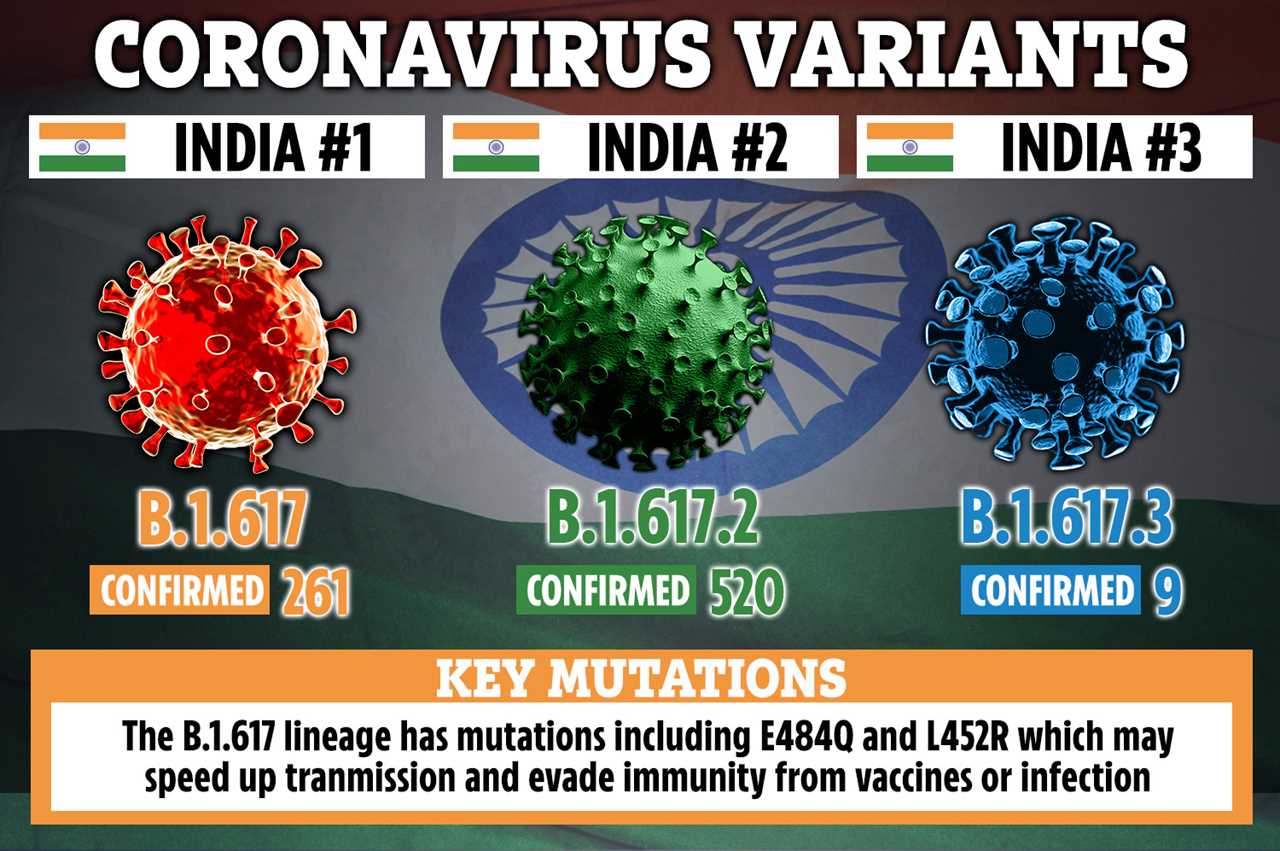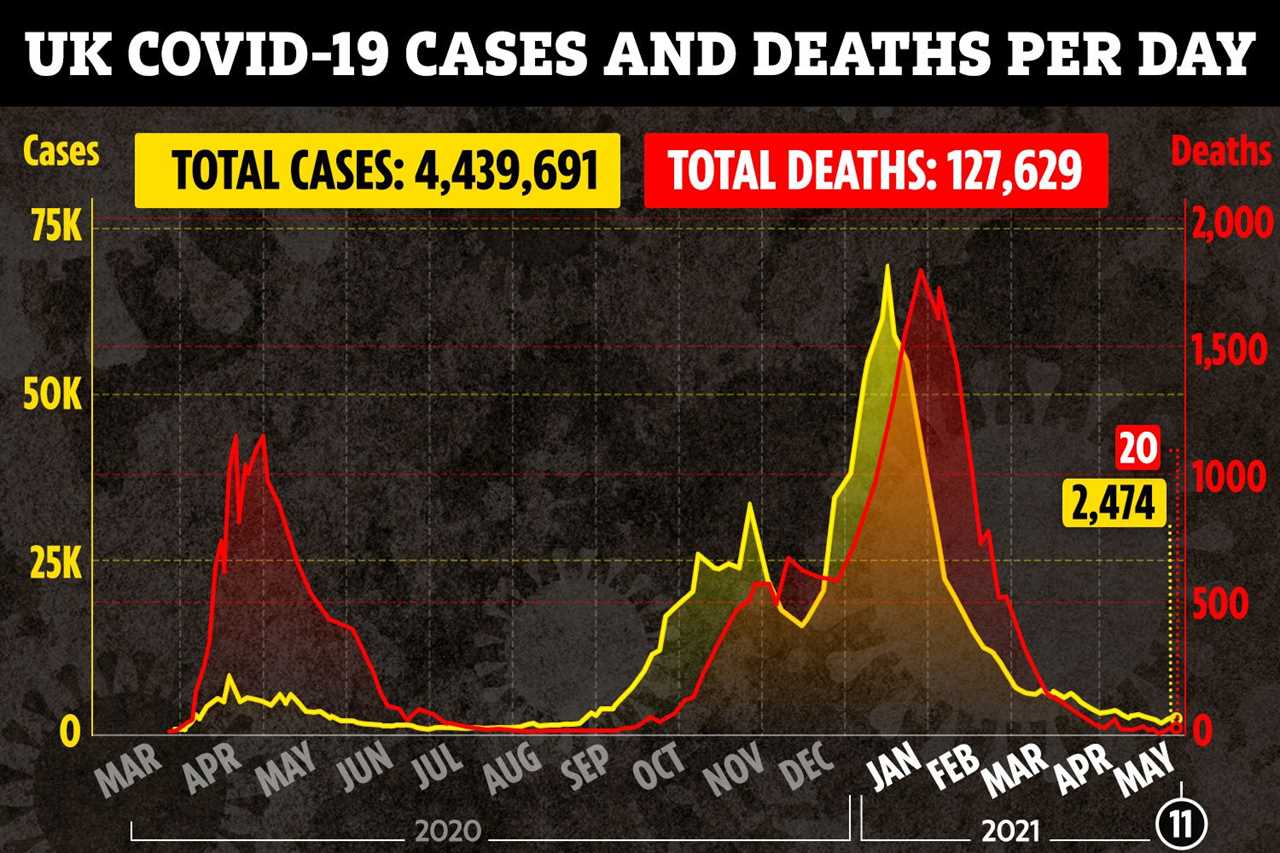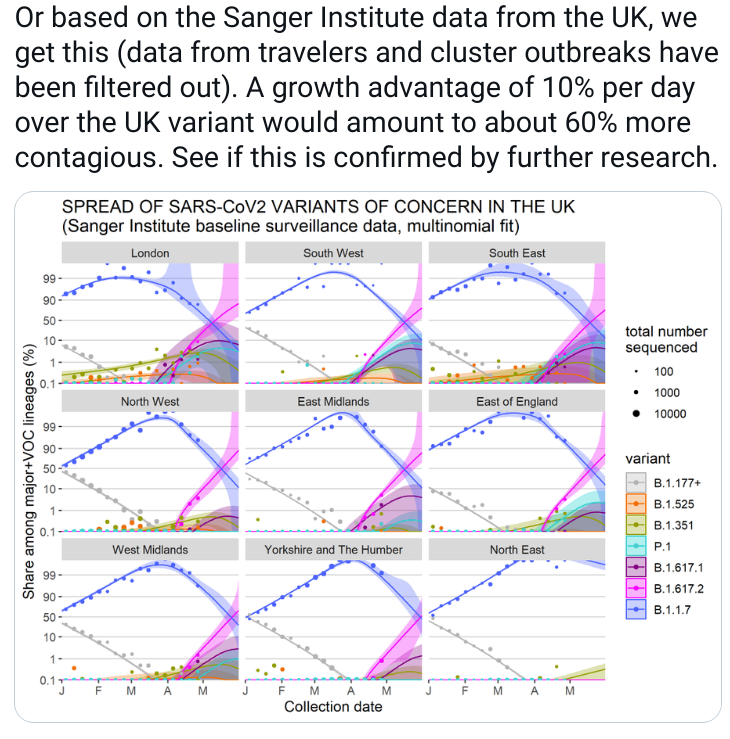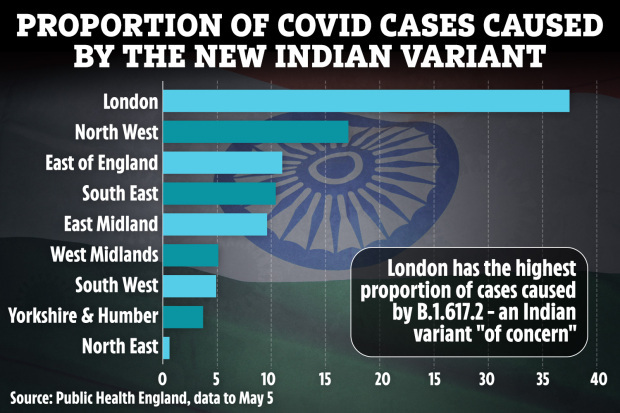UK COVID cases are on the rise as the “third wave” may have already started ahead of the next stage of unlocking.
Scientists fear the new variant from India is to blame, predicted to be up to 60 per cent more transmissible than the dominant Kent strain circulating.

Read our coronavirus live blog for the latest updates

Prof Paul Hunter, Professor in Medicine, The Norwich School of Medicine, University of East Anglia, said: “Today [May 11] 2,427 new cases of Covid have been reported in the UK.
“That is a 27 per cent increase on the number of cases report last Tuesday and means that in the last seven days there have been 15,895 cases reported which is a 12 per cent increase on the previous seven day period.
“This represents the largest week on week increase since early January. Fortunately at yet there is no sign that hospitalisations have started to increase in the UK.
“There has been a lot of debate about when and if a further wave of infection will happen in the UK. The reports of today suggest that this wave may have already begun.
“That hospitalisations have yet to increase would be consistent with the view that vaccine is still effective at reducing the risk of severe disease and gives hope that this new wave, if it indeed continues, will be less damaging to the NHS.”
There are also signs the R rate is increasing from the ZOE Covid Symptom Study app.
The app, which tracks the outbreak, shows R has risen in two weeks from 1.0 to 1.2, according to Prof Nick Cowern,
The new Indian variant, called B.1.617.2, has grown rapidly in the UK since first being discovered in the second week of April.
Some 520 cases have already been confirmed, but this data is roughly one week old. The true figure could be several times higher by now.
COG-UK, the group of scientists who track the spread of variants, say 1,393 cases have been detected as of May 7.
This from genetically screening a pool of positive swab tests to see which variant it was caused by.

Prof Hunter said: “Looking at public data from the COG-UK website, which suggests an increasing proportion of the cases they sequence are the Indian variant B.1.617.2, this may suggest the increase in infections may be due to the spread of this variant.”
He said provisional data showed “25 per cent of all positive samples they sequenced were this variant, up from about 13 per cent the previous week”.
Public Health England (PHE) data reveals that of cases genetically screened in London, 37 per cent were the Indian variant.
It comes as a professor estimates the Indian variant could be significantly more transmissible than the Kent strain, which is the most dominant in the UK at the moment.

The Kent variant, which overtook the “original” strain of coronavirus from China in a matter of weeks, led to the third lockdown in England.
Tom Wenseleers, a professor of evolutionary biology at the University of Leuven, Belgium, said he and colleagues had analysed UK data from the Sanger Institute.
He wrote on Twitter: “A growth advantage of 10 per cent per day over the UK variant would amount to about 60 per cent more contagious. See if this is confirmed by further research.”
Public health officials said last week B.1.617.2 was “at least” as transmissible as the Kent variant, meaning it may compete with it.
But there are early indications it can spread with even more ease, already overthrowing the Kent strain in some regions, according to Public Health England.


The chief medical officer for England, Professor Chris Whitty, said more work needs to be done.
He told the Downing Street briefing on Monday: “Our view is that this is a highly transmissible variant, at least as transmissible as the B117 variant. It is possible it is more transmissible but we’ll have to see.
“It has gone up very sharply and I think that’s a reason for us to be very careful about it.
“Of course we don’t know whether this is going to cause significant problems in the autumn.”
The positive news is that experts are moderately confident that vaccines should work against this strain to at least prevent severe disease, but this has not been studied.
Prof Whitty said: “At this point in time our view is it [B.1.617.2] is less likely to be able to escape vaccination than some of the other variants, particularly the South African one.
“But the data are not properly in there so I think, you know, we need to be cautious until we’ve seen clear data that give us an answer one way or the other.”
Meanwhile, cases in some parts of England are surging as local leaders have pleaded for more action.
Erewash in Derbyshire has seen the largest growth in cases. It’s infection rate – new cases per 100,000 – is 201 compared with 21.7 a week prior.
It has the highest infection rate in the country.
Bolton in Greater Manchester has the second highest rate, up from 74.4 to 152 in one week, with 437 new cases diagnosed.
PHE has also noted Bolton as a hotspot for the Indian variant.
The mayor of Greater Manchester Andy Burnham said the rise in cases was a “cause for concern”.
He said there was a “worrying” spike of cases in Bolton among the under-25s, and has now asked the government to urgently vaccinate everyone over the age of 16, BBC reported.
The Department for Health and Social Care said no decisions have been made on whether under-18s should be routinely offered vaccinations in the UK.






